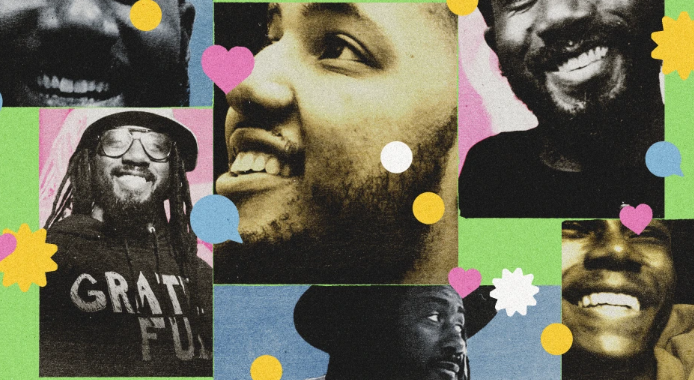Black Men Smile prioritizes Black joy in bleak times
A decade ago, one man made it his mission to promote images of men smiling amid political turmoil #BlackMenSmile became a hashtag with a purpose.
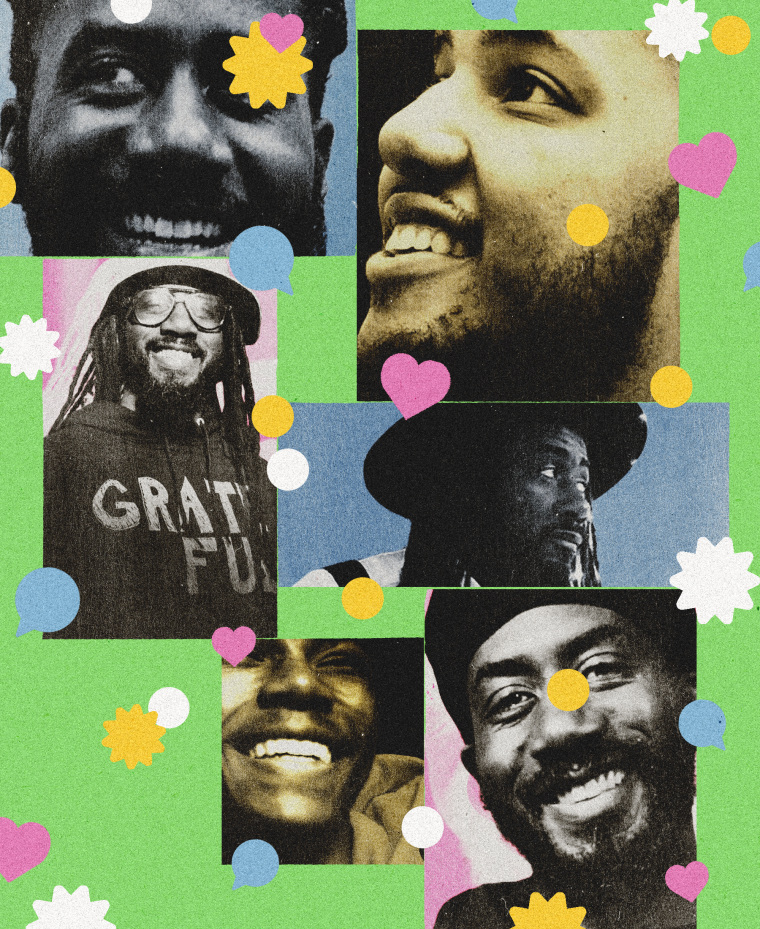
Ten years ago, Carlton Mackey, like much of the country’s Black population, was overwhelmed with media images of death, anger and unrest in the wake of Michael Brown’s killing. Ferguson, Missouri, and cities across the country erupted in protest, and social media users mourned Brown, who was killed by a police officer.
Mackey waded through the social media hashtags circulating at the time: #BlackLivesMatter, #MikeBrown, #HandsUpDontShoot, all delivering hundreds of results with images exuding sadness, pain and frustration.
Then, he typed in the hashtag #BlackMenSmile.
“It yielded zero results. I was angry and confused,” Mackey said. He decided to take action. He thought, “This is an opportunity to claim a space and make it a place where you can go and see and know there is another modality of existence. One of joy and reflections of our life.”
“The hashtag #BlackMenSmile was an opportunity to take up a space that had not been claimed,” he said.
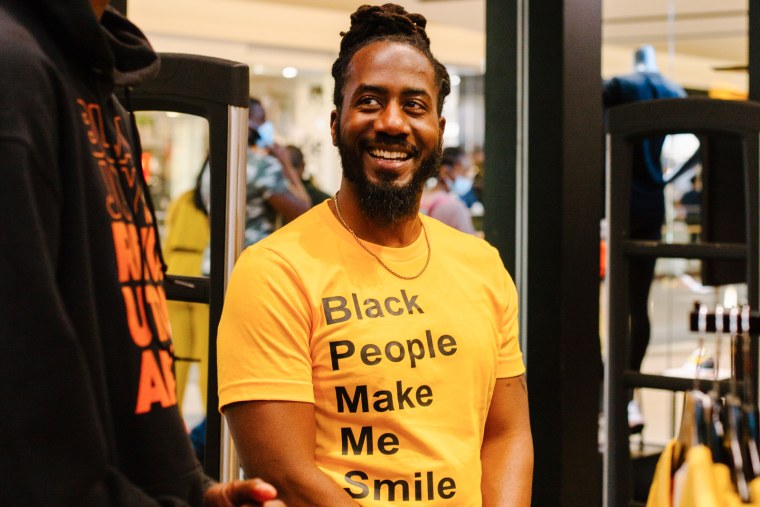
Mackey made it his mission to promote images of men smiling and expressing joy amid the political turmoil. It quickly grew into a mini movement. Men across the country populated the hashtag with smiling images alongside vulnerable captions about personal growth and optimism. One man wrote that he smiles because he has “hope that my situation will change.” Another wrote, “Thinking about how far I’ve come from one form of life to another, but knowing that I’m still the same kid that made his first playstation out of cardboard.”
Over the years, the small team of two — Mackey and the company’s director of narrative media, Jeremiah Griffin — has grown the empowerment company from the ground up. Today, the brand’s Instagram account has more than 100,000 followers and has expanded into apparel, with a line of sweatshirts and other items brandishing messages like “Black Joy is Revolutionary.”
Under the Black Men Smile umbrella is a pair of YouTube series, “Je’s Journal,” which features discussions about fatherhood, relationships and faith, and “Greenhouse Conversations,” a nature-themed exploration of Black mental health and spirituality.

Mackey’s original mission was simple: “It was about celebrating the way we saw ourselves. It was about placing value and emphasis and priority on what we have to say about ourselves and not the stories that are being told about us,” he said.
Their company’s largest collaboration came in 2024 when Target locations across the country briefly sold Black Men Smile apparel as part of Target’s Black History Month collection. Nearly a year later, the collaboration is bittersweet, Mackey said, given the company’s recent announcement that it will roll back its diversity, equity and inclusion programs, following suit with other large retailers including Walmart and Lowe’s.
Mackey said that although the collaboration was a major accomplishment, he likely would not work with Target again as a result of its decision. “I wouldn’t choose to essentially condone that behavior by putting my brand in the store at this critical time,” he said.
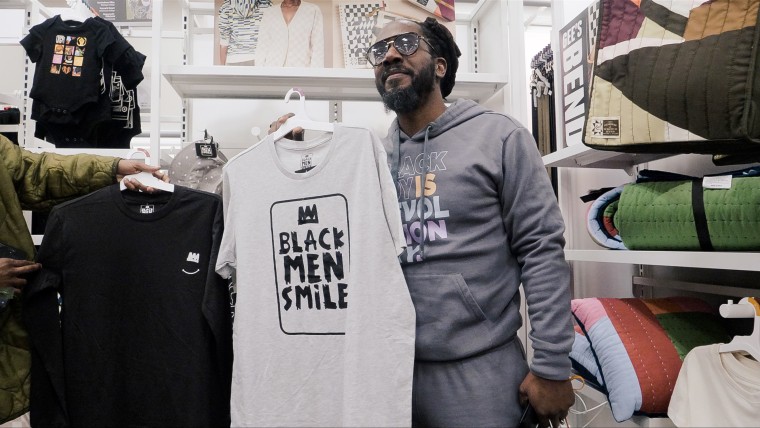
“I’m basing my decision on a principled argument of being in solidarity with the larger body, the larger movement, of Black people who are making conscious decisions” about where to spend their money, he added.
Mackey and Griffin held an Instagram Live session last month where nearly two dozen social media followers were able to voice their opinions and frustrations over the DEI rollbacks. These community discussions will likely continue as the pair works to expand their “Black joy” movement under the new Trump administration.
In his first weeks in office, Trump signed an executive order to end all DEI initiatives in the federal government; moved to ban observances of Martin Luther King Jr. Day, Black History Month, Juneteenth; targeted gender-affirming care, launched mass deportation efforts and more. Trump’s early orders have sent shockwaves through progressive circles and grassroots organizations whose leaders say their work will be even more difficult under the new administration.
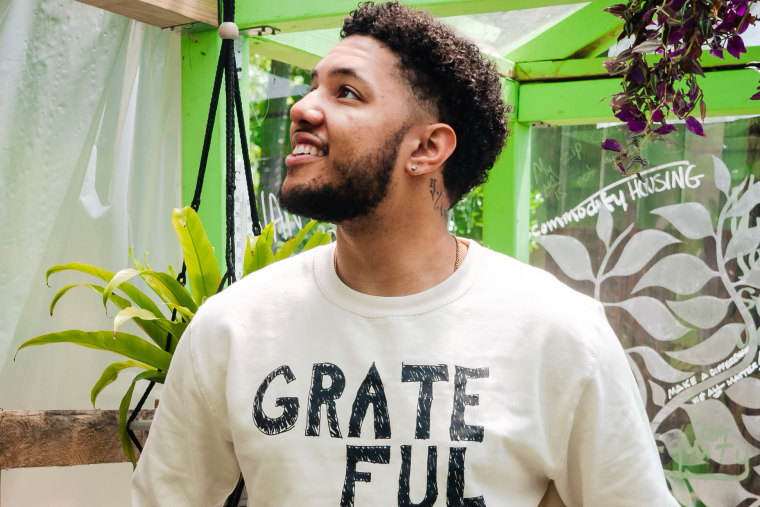
This, Mackey and Griffin said, makes their work more important than ever.
“The doubt, the fear, the uncertainty in our community just rises at times like this,” Griffin said.
“With that being known, that’s the work we do. In those times is when we come together, we rally, we use the platform we’ve created to encourage, to uplift, to reflect the joy that is inside and that we have access to, to re-empower our community, re-empower ourselves. The work remains the work.”
